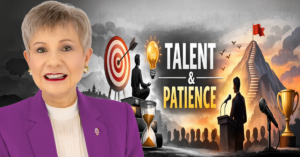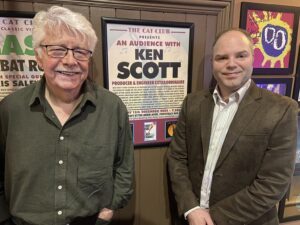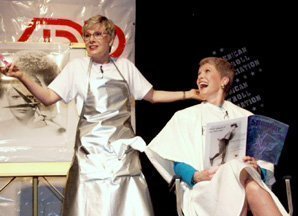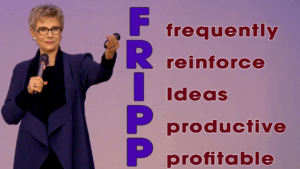As a seasoned professional speaker, I am frequently asked for advice by up-and-coming speakers. They enjoy my programs on How to Open Your Presentation with Impact and Under the Magnifying Glass: Good to Great Presentations. However, there is one piece of advice they do not always like.
“You may not lack the talent to become a successful speaker. However, you may lack the patience.”
I often quote Budd Friedman, who founded the Improv Comedy Clubs:
“Even with natural talent, it still takes 15 years to become an overnight success.”
This advice applies far beyond professional speaking.
Constantly improve the quality of your presentations.
At the same time, your promotion must be ongoing, consistent, and relentless. You start…and you do not stop.
You revisit, refocus, and rescript how you describe yourself and your services.
You expand and modernize the ways you promote.
You build and nurture strong professional relationships throughout your career.
It pays off.
Recently, I delivered a full-day sales presentation training at a national sales meeting. I was recommended by an executive who remembered attending my program 21 years ago.
A few months ago, I delivered a two-hour interactive storytelling program for a client who also remembered me from 20 years ago.
One client who asked to see my demo VHS and hired me for a keynote in 1987 has brought me back every year since 1996.
However, now I fill multiple roles to maximize the impact of their 2,000-plus-attendee conventions: speaking, speechwriting, coaching leaders and industry experts, creating content, and training convention speakers.
Many of the skills they value most now are skills I developed long after they first hired me.
My advice to speakers: What is your expertise?
Will others pay to learn it from you?
Are you multifaceted in your delivery?
Are you patient enough to wait for your overnight success?
“Fripp coaching measurably improved presentation skills across our leadership team. The feedback was always direct and immediately actionable. Presentations became more specific, the ‘why it matters’ clearer, and messages landed with confidence. I saw one colleague’s internal presentation transform from ‘just okay’ to ‘blown away’ with a few critical tweaks learned in a Fripp session.”
Jason Burns, Director, NCI TMM, Nutanix








